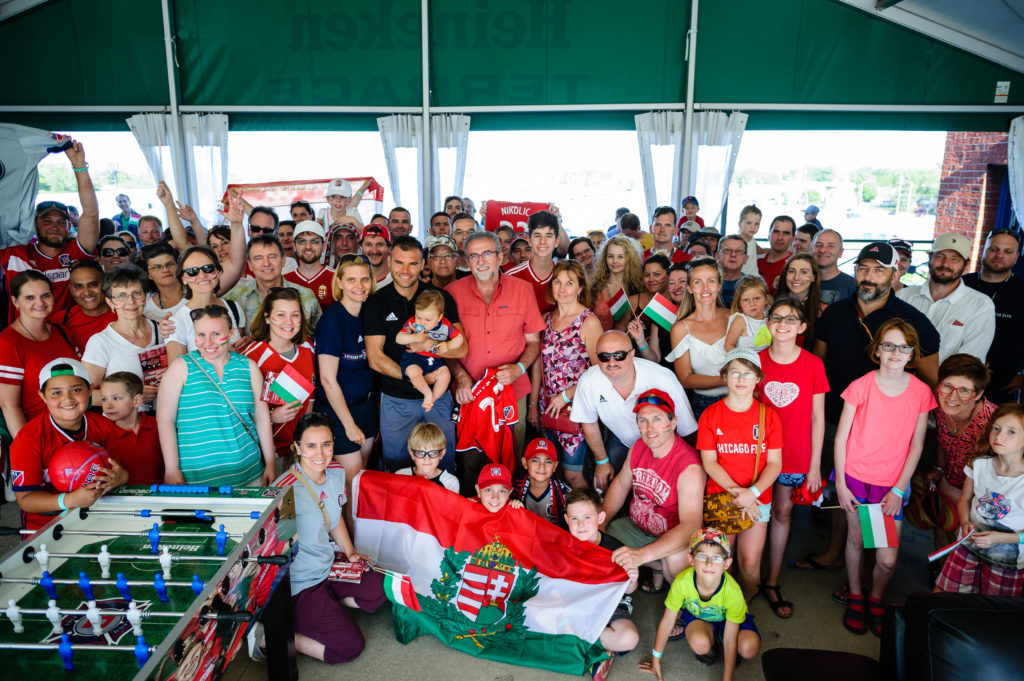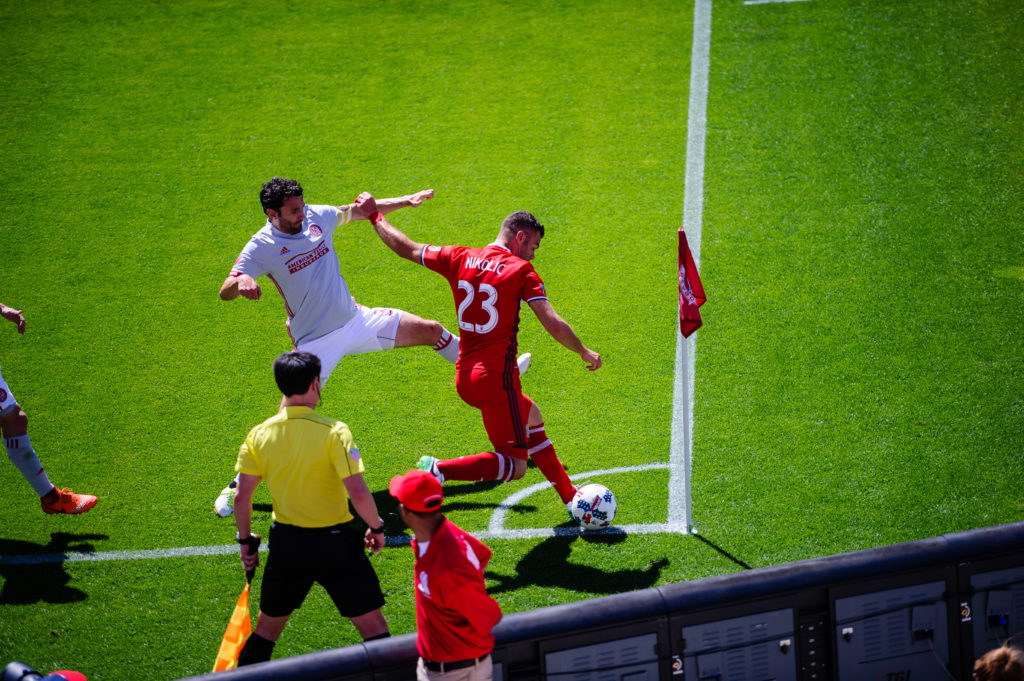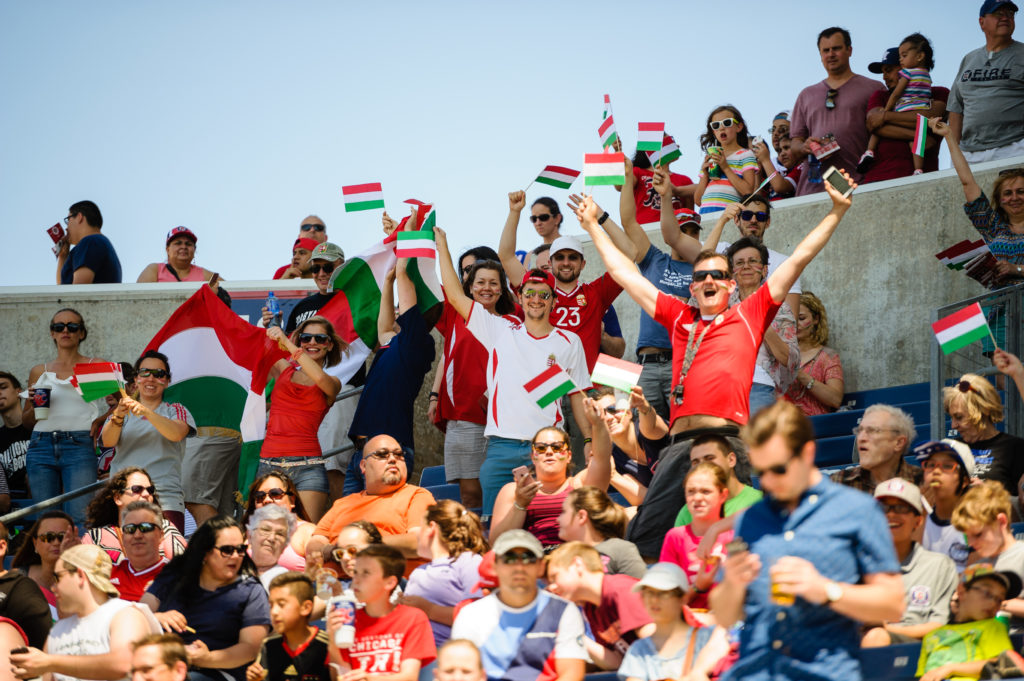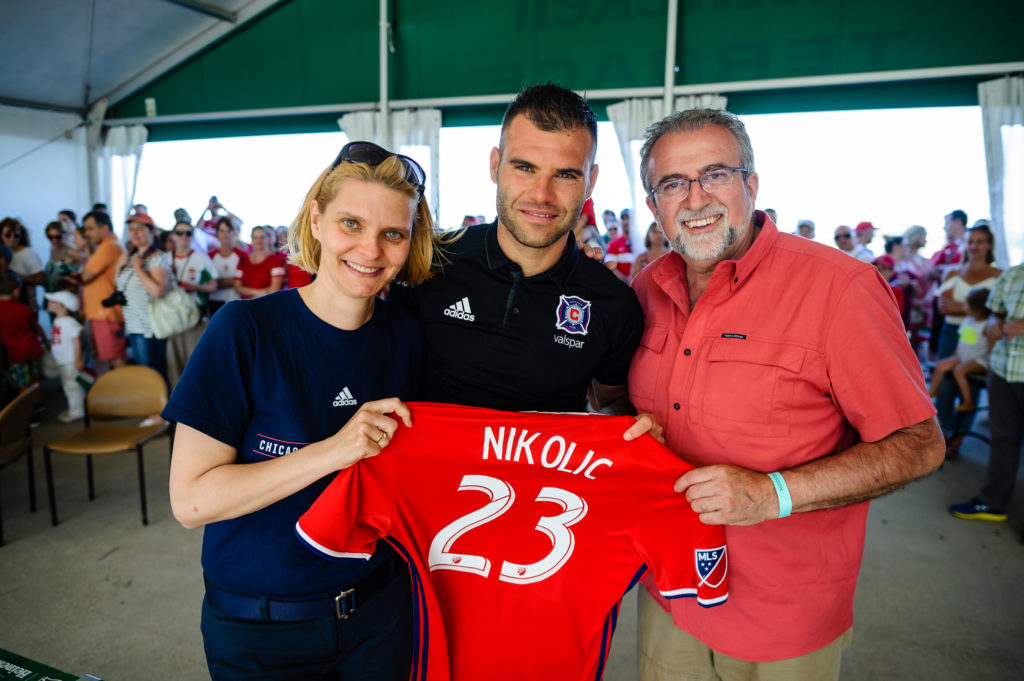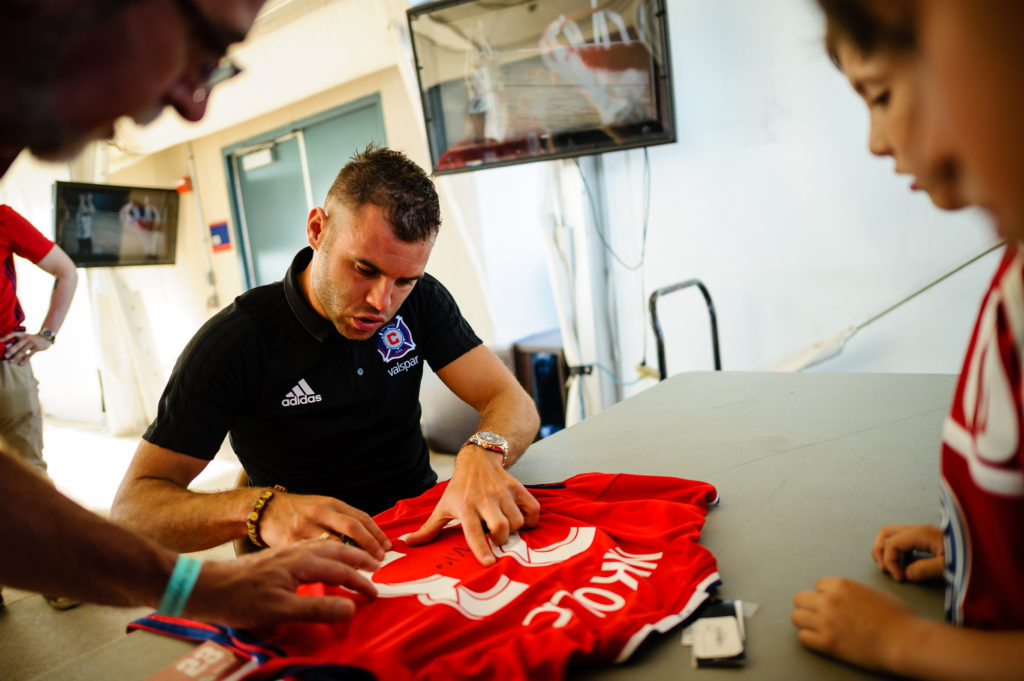Original article was published by Chicago Tribune’s Community Contributor
The Chicago Fire Soccer Club with the help of the Hungarian Club of Chicago has organized a Hungarian Heritage Day for their game against Atlanta United SC on June 10, Saturday.
Nikolic Nemanja or Niko, the newest member of Chicago Fire SC was born in Zenta, Serbia to a Hungarian mother and a Serbian father. He later played for the clubs of Barcs, Kaposvár, Székesfehérvar for Videoton FC and even for Legia Warsaw in Poland. It was December, 2016 when Chicago Fire brought him onboard signing a contract for 3 years. Nikolic won championships for both Hungary and Poland and was ranked top scorer for the 2015-2016 season playing for Legia Warsaw.
The Hungarian Club of Chicago mobilized every asset it had and invited the Hungarian population living in the Chicagoland area and the neighboring states. The club itself was established in 1922 and it is regarded as one of the largest Hungarian communities not only in Chicago but in all of the United States. Its main goal is to reach out to those individuals whose roots go back to Hungary, preserve the language, the traditions and spark the thought of a national identity.
András Demeter, the president of the Hungarian Club has told me that the idea of the Hungarian Heritage Day can be traced back to January, 2017. The drive behind it was to unite the Hungarian community as a whole behind our “own” Hungarian player, Nemanja Nikolic. “Something moved, shifted within the Hungarian Community, both young and old looked forward to the match, excited to support Nikolic” said András Demeter.
A few hours before the game the Hungarian club alongside with their friends who drove from Indiana, held a tailgating event in the parking lot of the stadium. This quintessential example of American tradition most definitely helped form a unique bond between everybody and they marched off to the stadium united as one.
There were more than 250 Hungarian supporters at the game, with our own sections reserved and we have flooded them with Red, White and Green, the colors of the Hungarian flag. We were there to support Chicago Fire, but we gave extra attention to our Niko.
The kick-off or celebratory penalty kick was performed by no other but Zita Bencsik dr, the Consul General of Chicago herself. The Consul General told us that it is without question that national identity, pride and love of the sport goes hand in hand, and are indivisible and are essential in forming a community. Nothing proves this more than how the Hungarians managed to come together for such an event to support a Hungarian player. This might not be a big deal to some but for us, coming from such a small country it was a phenomenal experience.
The scorching heat did not stop us from sitting through the game, chanting and singing the enitre time. Chicago Fire missed a few opportunities to score but overall performed much better than Atlanta United which resulted in a 2-0 victory for Chicago. The cherry on top for all of us was that the second goal was scored by Nikolic which was a penalty shot in the 70th minute of the game. He scored without effort, just like a professional would and caused a deafening uproar from the Hungarian section.
After the match, the Hungarian supporters had the opportunity to meet with Nikolic who was handing out autographs, shaking hands and taking pictures as a celebrity. We asked if how he was faring with the new team and how he is adjusting to the new country and culture. He told us that the first 2 months were the hardest because his family, his wife Nóri, and his 2 children were not able to accompany him initially. Niko mentioned that the team welcomed him with open arms and he is now used to the style of play. The team is on a roll, they have not been beaten for the past 7 games!
At the end of our interview we asked Nikolic if he had ever thought that Chicagoland was home to almost 30,000 Hungarians. He was genuinely surprised. We could tell that he was really moved by how many people showed up just to support him.
Edited by: Nóra Bhuiya-Taksás
Translated by: Zsolt Szabó
Photos by: Mózsi Gábor

